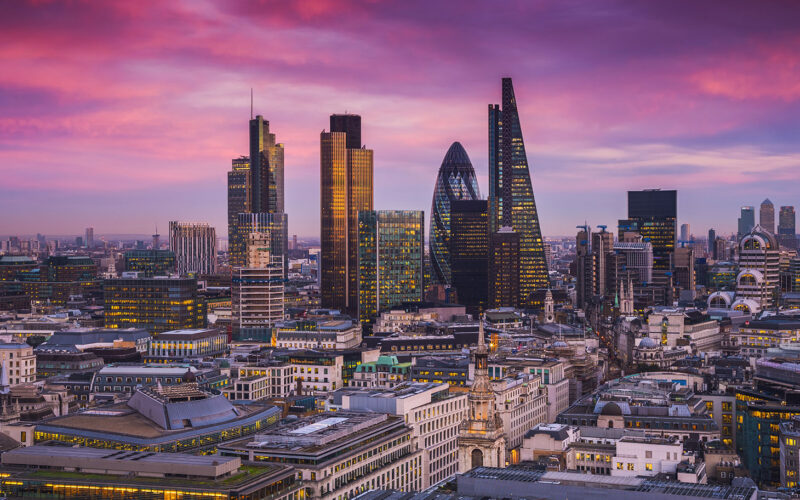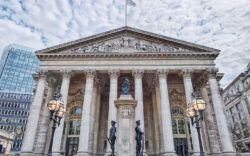- Just you try managing a complex system
- It’s the debt service that matters most
- Will rates go back to zero?
Here at Southbank Investment Research we tend to give central bankers a hard time. Of course, it is far easier to be a critic than a practitioner of any craft.
I doubt that I could do any better than the current set of MPC members, or those on the US Federal Reserve Board, or any other central bankers for that matter. It sounds to me as if they are tasked with the impossible: managing a complex system.
It didn’t used to be this way. Central bankers used to have narrow, well-defined mandates. Walter Bagehot, founding editor-in-chief of the venerable Economist magazine, famously summed this up as, “Lend freely, at penalty rates of interest, against good collateral.”
What this amounted to in practice was that the Bank of England didn’t really get involved in the economy at all, with the exception of providing temporary liquidity to the banking system if one or more banks got into trouble.
That liquidity might be substantial, hence “lend freely”. But it would be expensive, hence “penalty rates of interest”. And no credit would be extended at all against assets with more than a negligible risk of default, hence “good collateral”.
The day-to-day cost of borrowing would be set by the lending marketplace, not by the Bank. To the extent there were economic cycles and occasional recessions, so be it. The Bank had no business trying to steer the economy, other than to prevent a poorly piloted ship from sinking in the harbour where it would mess things up for everyone.
What a difference today from Bagehot’s time some 150 years ago. Central bankers are squarely at the con, setting interest rates, providing all manner of interbank credit, including emergency interventions, and speak openly about their central role in managing the economy.
They also claim they are acting in our best interests and know what they are doing.
I have my doubts about that (and my colleague Nick has been warning investors to prepare with what is to come). Best I can summarise, when it comes to the emergency interventions mentioned above, the Bank has strayed so far from Bagehot’s dictum that an up-to-date version would read thus:
“Lend freely, at low rates of interest, against just about anything.”
That sums up the global financial crisis of 2008 rather well now, doesn’t it?
With last week’s rate cut, we come full circle on the first interest-rate cycle since. Rates rose from zero to 5.25%. Now they’re on the way down again.
Some, including five members of the MPC obviously, believe that it is about time. Inflation has gradually declined. Economic growth has been anaemic. Mortgages have become unaffordable.
So has the national debt. Debt service is now amongst the largest items in the budget. And the debt service burden is only going to grow as long as the trend towards ever higher debt continues. It is roughly 100% of GDP already.
This huge debt burden is now the Bank’s primary concern. Anything that gets in the way of the government’s ability to service that debt becomes a problem for the entire economy, because the base collateral for the banking system and for the Bank of England’s sterling liabilities – our money – is government debt.
What this means in practice is that the Bank will keep interest rates at a level that does not place dangerous pressure on government finances. That is more likely than not to keep an inflationary bias in the economy.
In exchange, the government must promise not to allow spending to grow too quickly, or the Bank will put an end to it, perhaps in somewhat the same fashion as it did in 2022 when former Prime Minister Liz Truss announced a “mini-budget” which included an unfunded tax cut.
This all begs the question of who is really in charge of the country. The government might act as if it is, but is this really the case when the Bank can step in at any time and pull the plug on whatever government plans?
The governor, Andrew Bailey, who voted for the rate cut, replied when asked about how low rates might go this time, “don’t expect to go back to zero”. I suppose he’s confident that things are now more “normal” than they were during the extraordinary period from 2008-2022 when rates were lower than at any time in recorded financial history.
Perhaps he’s right. I don’t know. But perhaps he wasn’t speaking to me so much as speaking to the new government, pointing out that any grandiose spending plans will not be tolerated.
Zero rates, you see, are reserved for those times when the banks need to be bailed out. Governments, it would seem, should not expect to enjoy the same privilege.
Until next time,

John Butler
Investment Director, Fortune & Freedom
PS If the Bank is the one really in charge of the purse strings, what does this mean for your investments? Nick’s insights could be crucial for anyone looking to navigate these uncertain times and prepare for the changes ahead. Find out more here.



